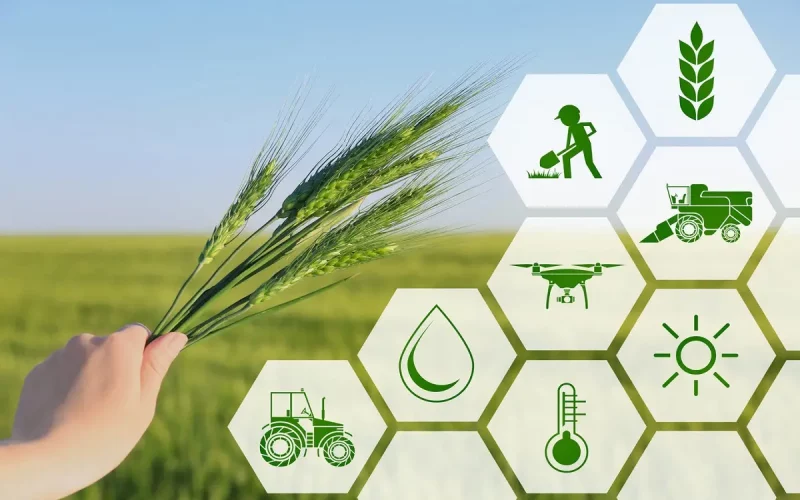The Future of Sustainable Agriculture: Innovations for a Growing World
As the global population is projected to reach 9.7 billion by 2050, the demand for food is set to increase dramatically. Traditional farming methods, however, have proven to be unsustainable and can cause significant environmental harm, including soil degradation, water pollution, and deforestation. To meet this growing demand while protecting our planet, innovative and sustainable agricultural practices are emerging worldwide.
The Urgent Need for Sustainable Agriculture
The challenges facing our food systems are immense. Conventional farming not only depletes natural resources but also contributes to climate change through greenhouse gas emissions. As we look ahead, it’s clear that we need more sustainable ways to produce food that can support a growing population without compromising the health of our planet.
Key Issues in Traditional Farming
- Soil Degradation: Over-farming and the excessive use of chemical fertilizers lead to nutrient depletion and soil erosion, making it increasingly difficult to grow crops.
- Water Pollution: Runoff from agricultural fields carries pesticides and fertilizers into waterways, harming aquatic ecosystems and contaminating drinking water supplies.
- Deforestation: Expanding farmland often comes at the expense of forests, contributing to loss of biodiversity and increased carbon emissions.
To combat these issues, sustainable agricultural practices are being developed and adopted to create a more resilient food system.
Innovative Solutions in Sustainable Agriculture
1. Vertical Farming
One of the most promising innovations in sustainable agriculture is vertical farming. This technique involves growing crops in vertically stacked layers, often utilizing artificial light and a controlled environment.
Benefits of Vertical Farming
- Space Efficiency: Vertical farming maximizes the use of urban space, allowing for food production in areas where traditional farming is not feasible.
- Reduced Water Usage: These systems often use hydroponics or aeroponics, which require significantly less water than conventional farming methods.
- Minimal Pesticide Use: The controlled environment reduces the need for pesticides, resulting in cleaner produce.
Cities around the world are beginning to embrace vertical farming as a viable solution to food scarcity and urbanization challenges.
2. Precision Agriculture
Another transformative approach is precision agriculture, which leverages technology to enhance farming practices. Utilizing tools such as GPS, drones, and sensors, farmers can monitor and manage their crops with unprecedented accuracy.
Advantages of Precision Agriculture
- Resource Optimization: By applying water and fertilizers only where and when they are needed, farmers can reduce waste and increase crop yields.
- Data-Driven Decisions: Real-time data allows for informed decision-making, enabling farmers to respond quickly to changing conditions.
- Sustainability: By minimizing input use, precision agriculture contributes to reduced environmental impact and promotes sustainable farming practices.
This technology is revolutionizing the agricultural landscape, making it easier for farmers to produce more with less.
3. Plant-Based Proteins
In addition to innovative farming techniques, there is a growing trend toward plant-based proteins as an alternative to traditional animal farming. This shift not only addresses the environmental impact of meat production but also promotes healthier eating habits.
Benefits of Plant-Based Proteins
- Lower Carbon Footprint: The production of plant-based proteins generates fewer greenhouse gas emissions compared to animal farming.
- Resource Efficiency: Growing plants for direct human consumption requires significantly less land and water than raising livestock.
- Healthier Options: Increasing plant-based protein consumption can help mitigate health issues associated with high meat consumption, such as heart disease and obesity.
As consumers become more health-conscious and environmentally aware, the demand for plant-based alternatives continues to rise.
Overcoming Challenges in Sustainable Agriculture
Despite the promising advancements in sustainable agricultural practices, several significant challenges remain. Addressing these issues is essential for ensuring a secure and sustainable food future.
1. Reducing Food Waste
Food waste is a pressing global issue. Approximately one-third of all food produced is wasted, contributing to unnecessary resource depletion and greenhouse gas emissions. Solutions must focus on improving supply chain efficiency, enhancing food storage and transportation, and educating consumers about reducing waste.
2. Addressing Food Inequities
Access to healthy food remains a challenge for many communities, particularly in low-income areas. Sustainable agriculture must prioritize equitable access to nutritious foods, ensuring that all populations can benefit from advancements in food production.
3. Mitigating Climate Change
Climate change poses a significant threat to agriculture, affecting crop yields and food security. Farmers will need to adapt their practices to build resilience against extreme weather conditions, shifting growing seasons, and other climate-related challenges.
The Role of Research and Advocacy
As a journalist focused on sustainable agriculture, I am dedicated to uncovering the latest research and developments in this field. By highlighting both the innovations and the challenges, I aim to raise awareness about the importance of sustainable practices in ensuring a secure food future.
The Importance of Collaboration
Collaboration among governments, researchers, and the agricultural industry is crucial for advancing sustainable practices. By working together, stakeholders can share knowledge, resources, and technologies that drive innovation and promote sustainability.
Supporting Small Farmers
Smallholder farmers play a vital role in global food production, yet they often lack access to the resources and technology needed to implement sustainable practices. Supporting these farmers through education, funding, and access to markets is essential for creating a more sustainable food system.
Conclusion
The path to sustainable agriculture is paved with innovative solutions that can help meet the challenges of a growing global population. Vertical farming, precision agriculture, and plant-based proteins are just a few of the advancements that offer hope for a more sustainable future.
However, addressing food waste, inequities in access, and the impacts of climate change remains critical. As we move forward, commitment from all sectors—government, industry, and consumers—will be essential in creating a food system that is not only productive but also sustainable and equitable for generations to come. By staying informed and advocating for sustainable practices, we can contribute to a healthier planet and a more secure food future.












